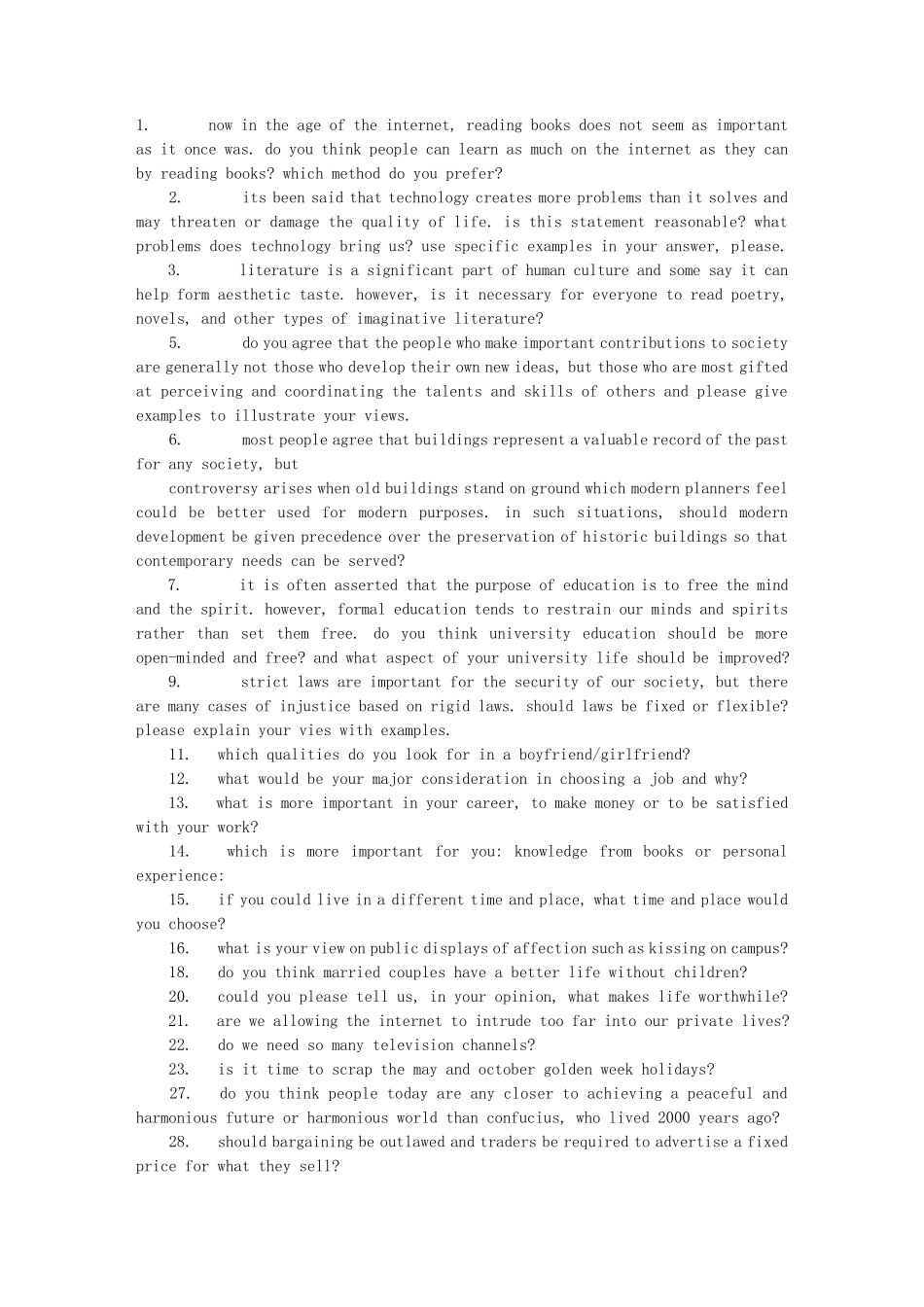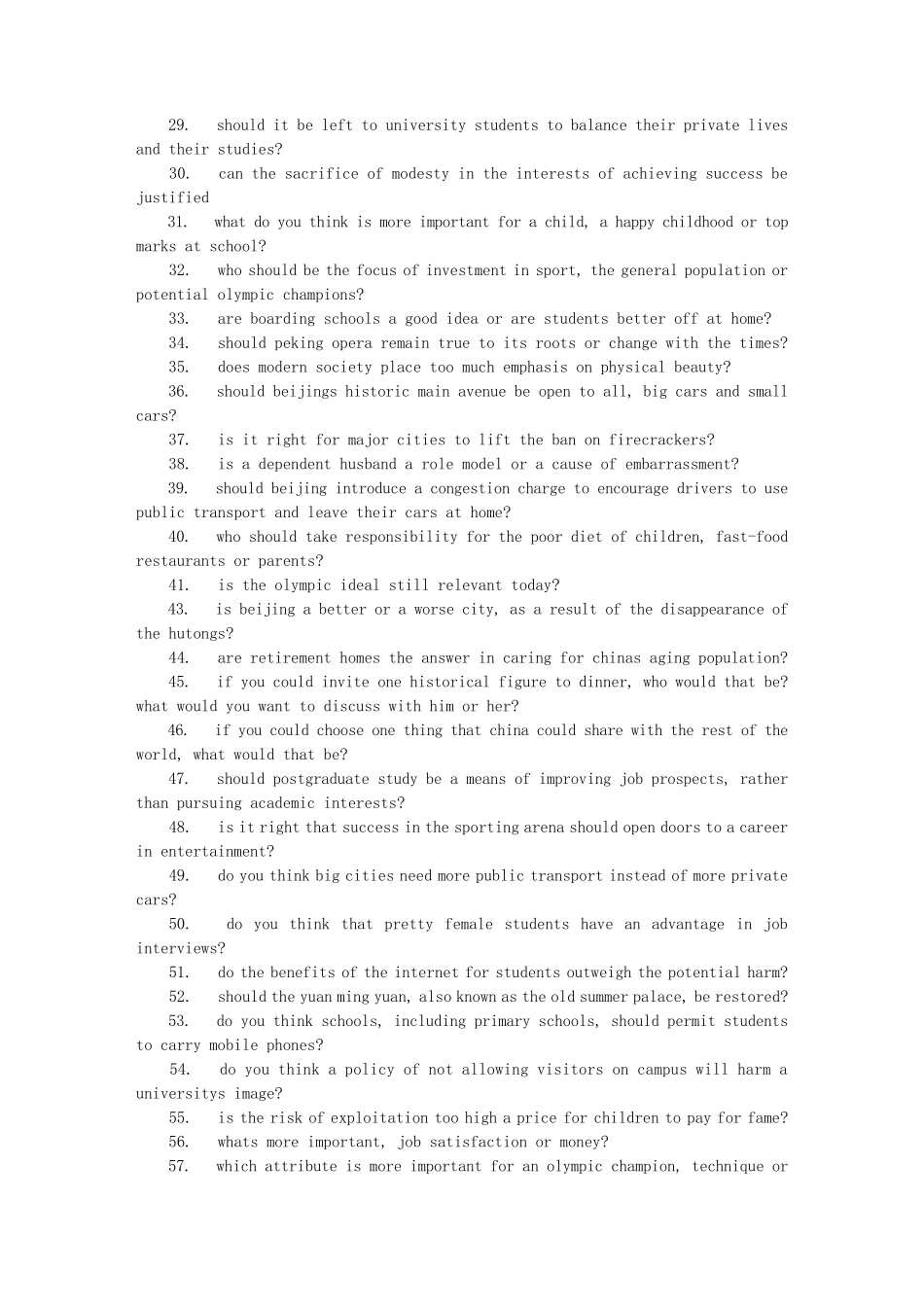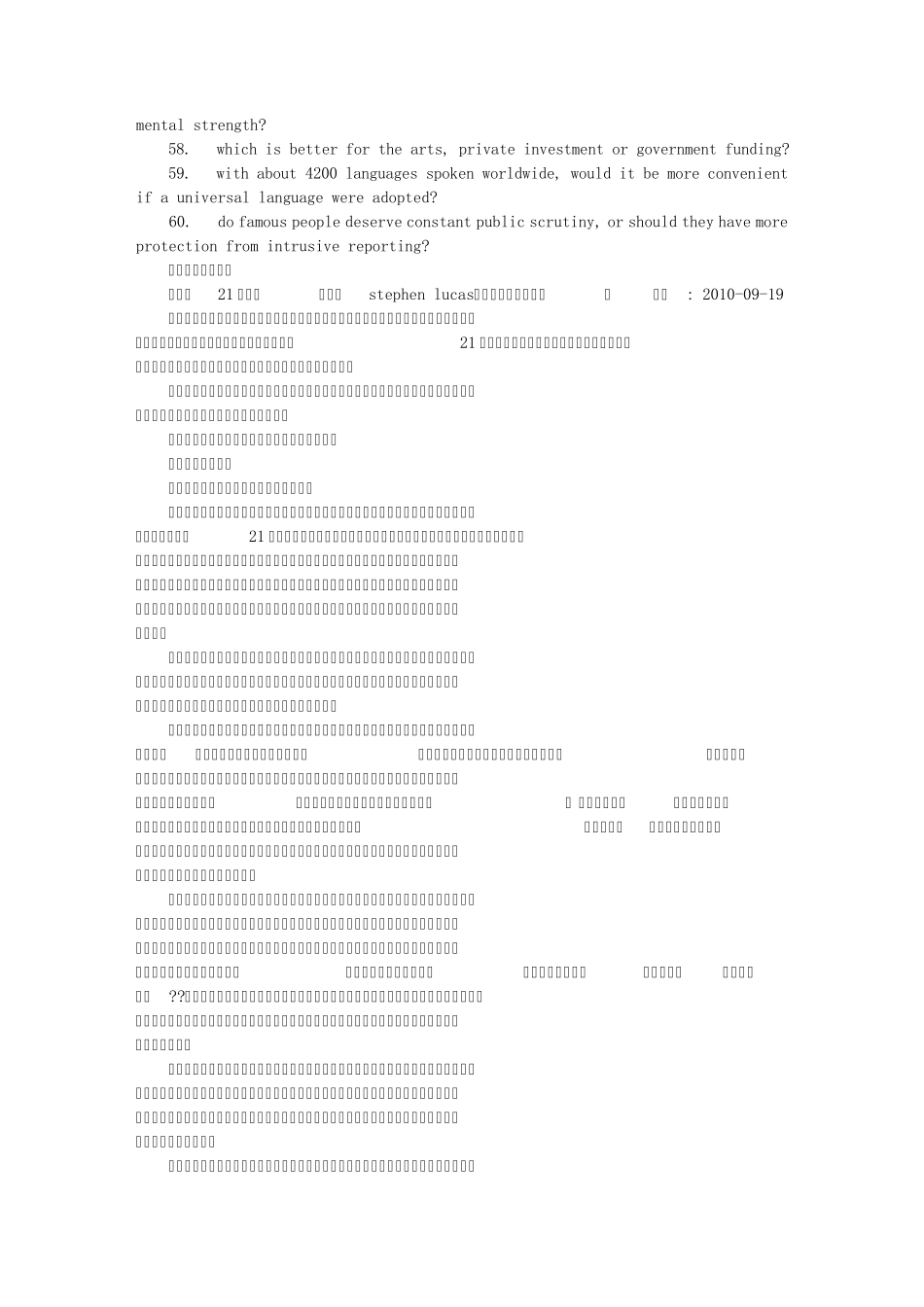1. now in the age of the internet, reading books does not seem as important as it once was. do you think people can learn as much on the internet as they can by reading books? which method do you prefer? 2. its been said that technology creates more problems than it solves and may threaten or damage the quality of life. is this statement reasonable? what problems does technology bring us? use specific examples in your answer, please. 3. literature is a significant part of human culture and some say it can help form aesthetic taste. however, is it necessary for everyone to read poetry, novels, and other types of imaginative literature? 5. do you agree that the people who make important contributions to society are generally not those who develop their own new ideas, but those who are most gifted at perceiving and coordinating the talents and skills of others and please give examples to illustrate your views. 6. most people agree that buildings represent a valuable record of the past for any society, but controversy arises when old buildings stand on ground which modern planners feel could be better used for modern purposes. in such situations, should modern development be given precedence over the preservation of historic buildings so that contemporary needs can be served? 7. it is often asserted that the purpose of education is to free the mind and the spirit. however, formal education tends to restrain our minds and spirits rather than set them free. do you think university education should be more open-minded and free? and what aspect of your university life should be improved? 9. strict laws are important for the security of our society, but there are many cases of injustice ...


